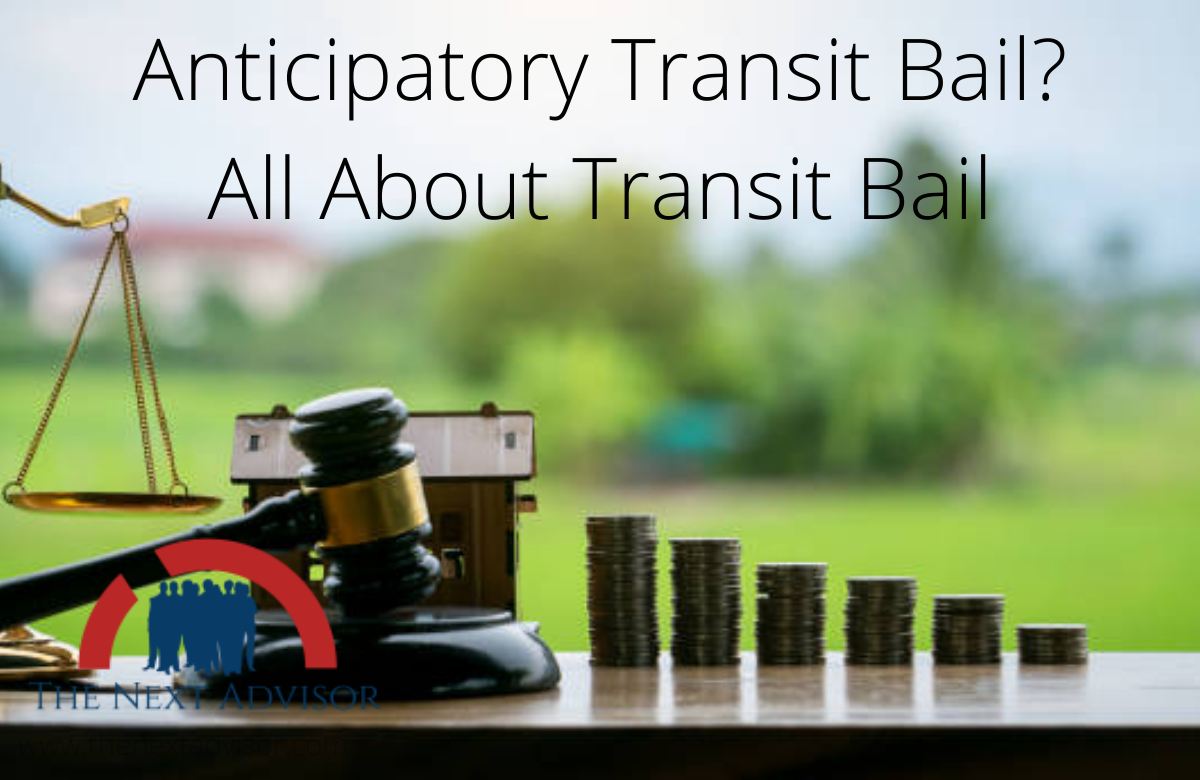In the Indian Judiciary, there are different kinds of Bails. Like Regular Bail, Anticipatory Bail, etc… One of them is Anticipatory transit Bail. Anticipatory bail means pre-arrest bail. Now let us see What is Anticipatory transit bail?
What is bail?
Bail is written permission from a court, allowing a person charged with a criminal offense to be out of jail while they wait for their trial or some other result in their case.
The types of Bail in Criminal Procedure Code
1. Ordinary bail is granted after the arrest of the accused. Note: Police custody is an inevitable concomitant of arrest for non-bailable offenses.
2. Anticipatory bail is granted in anticipation of arrest and is therefore effective at the very moment of arrest.
Anticipatory Bail – (You Can refer for a better and deep understanding – Anticipatory Bail -Section 438 CRPC -Laws In India)
Section 438 in The Code Of Criminal Procedure, 1973: Direction for grant of bail to person apprehending arrest. –
-
438 (1) When any person has reason to believe that he may be arrested on an allegation of having committed a nonbailable offense, he may apply to the High Court or the Court of Session for a direction under this section; and that Court may if it thinks fit, direct that in the event of such arrest, he shall be released on bail.
-
438 ( 2 ) Bail on condition: Compulsory presence for interrogation, no obstruction to justice, no leaving country, etc.
What is this Anticipatory Transit Bail?
• First thing first: There is no mention of Anticipatory transit bail in CrPC .. !! A case is filed against me in City A. The City A Police are out to arrest me in City B. OMG .. !! I am innocent, but the police are here to arrest me. I have to file an anticipatory bail but I cannot reach City A soon. I file an anticipatory bail plea in City B / C / D etc. Court grants Anticipatory transit bail of X days so that I can reach city A and follow the further proceedings there.
What’s the use of Anticipatory Transit bail?
•In the absence of transit anticipatory bail, the result would be that another state’s police could arrest a person from their home state without them having the opportunity to apply for anticipatory bail at all. ,
• The only option then left would be to apply for regular bail once they are arrested and taken to the state in which the case is registered.
The Current Case
•Shantanu Muluk, a resident of Beed district, Maharashtra, had approached the Bombay HC with an application for anticipatory transit bail, informing the court that a Delhi Police team is already in Beed to arrest him.
•The Bombay HC noted that the FIR has been lodged in New Delhi and so any regular application for anticipatory bail under Section 438 of CrPC will be considered by the Delhi High Court.
•However, HC asserted that Muluk can be granted transit bail to be able to approach the proper court in Delhi for anticipatory bail based on its previous 1985 verdict where it held,” Bombay HC would have jurisdiction if a person is likely to be arrested at a place within the jurisdiction of this court”.,
Anticipatory Transit Bail – the Potential problem
In Sandeep Lohariya & others v Jawahar Chelaram & others 2013 case, the accused was charged under IPC and Arms Act provisions in Navi Mumbai.
– The accused approached the Bombay HC for anticipatory bail, which was rejected in February 2013. This order was upheld by the Supreme Court twice ..!!
– Following this, the accused managed to get anticipatory transit bail from the Madhya Pradesh High Court, suppressing the fact that his anticipatory bail had been rejected by the Bombay High Court as well as the Supreme Court.



























